Curriculum
The IB PYP is a curriculum framework, which is an organized set of standards or learning outcomes that define the content to be learned and taught. This program develops the youngest students to be inquisitive, thoughtful learners. International Baccalaureate® (IB) programmes aim to do more than other curricula by developing inquiring, knowledgeable and caring young people who are motivated to succeed.
Beginning in preschool at YIES students benefit from a well-planned and individualized instruction in all core subjects:
-
Math
-
Language
-
Spanish
-
Social Studies
-
Visual Arts
-
Science
-
Music
-
Technology
-
and Physical Education
What is Inquiry-Based Learning?
The direct instruction approach used by IB PYP is Inquiry-based Learning. Inquiry-based Learning is a process where students are involved in their learning, formulate questions, investigate widely and then build new understandings, meanings and knowledge.
What does a PYP classroom look like?
-
A PYP classroom is organized to encourage students to become internationally-minded learners. Displayed items are interactive for students (consider eye level placement) and reflect a PYP approach to learning that permeates the classroom.
-
The classroom is kid-friendly, engaging, and orderly. Everything posted has a clearly defined purpose relating to student learning.
-
Classroom setup allows students to move easily between small group, whole group and individual learning activities.
What does the IB require of Schools and Teachers?
-
A global perspective to content
-
The implementation of the Learner Profile (describes the attributes of an internationally-minded person)
-
Planning time for teachers at the same grade level AND different grade levels to write and reflect on their work
-
Interdisciplinary units (units that include content from more than one subject area)
-
Extensive training for ALL staff involved in the PYP Programme
-
The involvement of the parent community in supporting the programme
What does the research say?
-
Research suggests that using inquiry-based learning with students can help them become more creative, more positive and more independent (Kuhne, 1995). This is true for all students, including those with special needs who require more individual attention during the process.
-
Other academic research shows that inquiry-based learning improves student achievement (GLEF, 2001).









